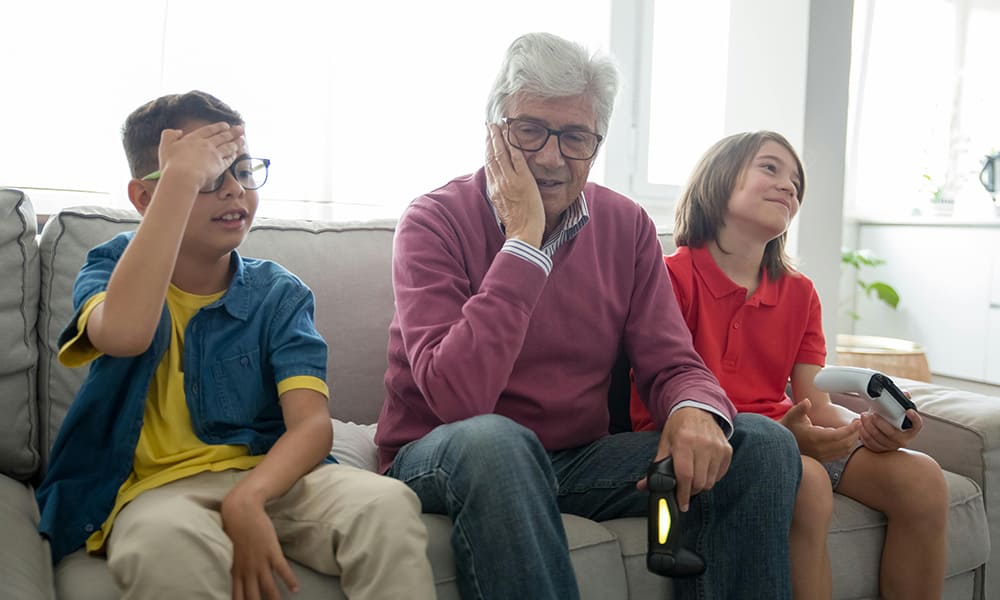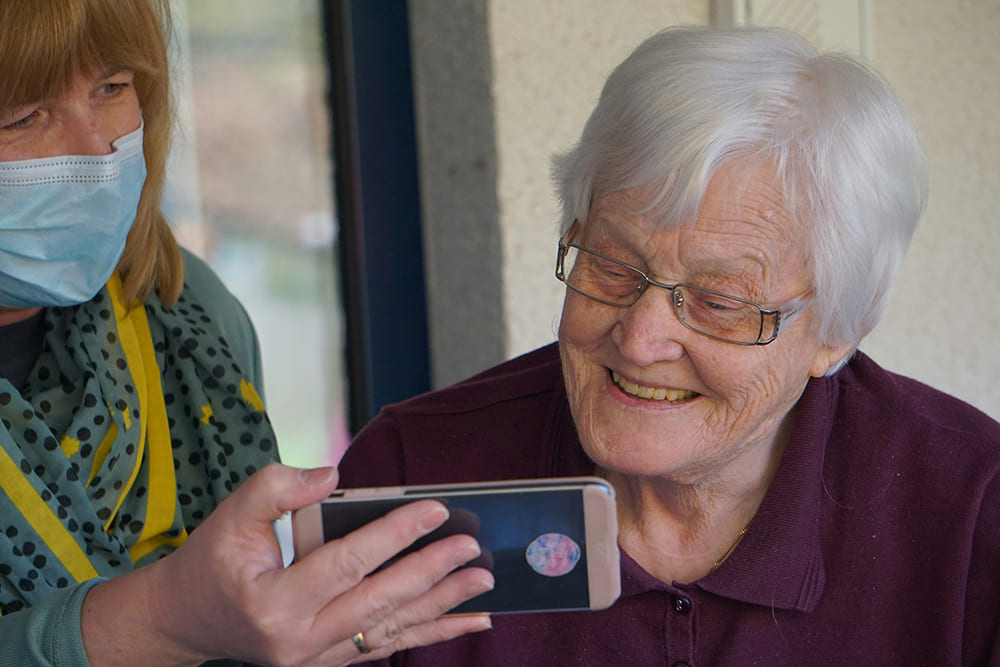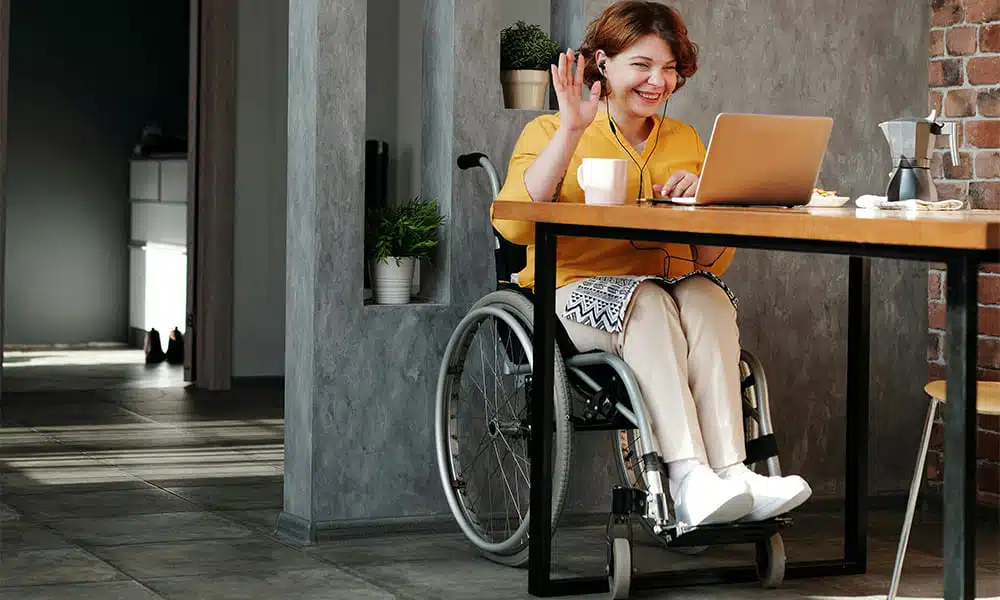Memory lapses are a normal part of life, but how do you know when forgetfulness becomes a sign of something more? This guide explores the key differences between age-related forgetfulness and dementia, helping you recognize the signs that might warrant a visit to the doctor.

Christopher Ravn
Key Takeaways
1. One may sometimes confuse dementia with forgetfulness. As one grows older, it is normal to go through memory lapses or issues with remembering certain information. As for dementia, the disease is neurological and generally affects thinking, behavior, or memory.
2. It is imperative to understand that, as a person ages, it is crucial to determine if they are experiencing symptoms of normal aging or dementia. Thus, it is important to know that an aging person’s cognitive abilities, such as reading, speaking, and verbal intellectualizing, do not change or improve.
3. If the patient is just suffering from forgetfulness and not experiencing dementia, then it can be managed. Being forgetful can take place at any age and may be due to aging, stress, lack of sleep, medications, or medical conditions.
Table of Contents
1. Forgetfulness Vs Dementia
2. What Are The Signs Of Age-Related Forgetfulness Vs Dementia?
3. How To Tell If It's Just Normal Forgetfulness Vs Dementia?
4. Is Mental Deterioration A Normal Part Of Aging?
5. Genetic Factors In Forgetfulness And Dementia
6. Reversible Causes Of Forgetfulness Or Memory Loss Compared To Dementia
7. Can Forgetfulness Without Dementia Be Managed?
8. How Medication Affects Memory And Dementia Risk
9. How Lifestyle Choices Affect Forgetfulness And Dementia
10. Frequently Asked Questions About Forgetfulness Vs Dementia
Forgetfulness Vs Dementia
- Forgetfulness is normal and happens once in a while. Dementia takes place regularly and affects a patient’s daily life.
- Forgetfulness shows minor memory lapses and dementia shows significant memory loss, affecting the inability to remember new information or work on daily routines.
- If a patient goes through forgetfulness, they are aware that this is happening. However, a dementia patient does not even realize it, even if it is persistent.
- Being forgetful is a normal process of aging but dementia causes structural changes in the brain, such as vascular dementia, Alzheimer’s Disease, or Lewy body dementia.
What Are The Signs Of Age-Related Forgetfulness Vs Dementia?
The signs of age-related forgetfulness are symptoms such as sometimes misplacing car keys, being unable to remember names or dates, struggling to multitask, taking time to process information and increased usage of memory aids such as reminders.
As for dementia symptoms, it is important to know what age does dementia start as patients show significant memory loss such as the inability to remember people, places, and events; issues with making decisions or solving problems; being unable to cook, bathe, or manage finances; or the inability to find the right words during communication; and changes in mood, behavior, and personality.
- Being forgetful takes place occasionally, while dementia is a significant decline in cognitive function.
- Elderly patients struggle to multitask, while dementia patients are unable to perform daily activities.
- Being forgetful does not affect mood, unlike dementia, when distinct changes in mood, personality, and behavior are observed.
How To Tell If It's Just Normal Forgetfulness Vs Dementia?
- Misplacing car keys
- They can’t remember where their glasses or wallets are
- Unable to remember names or places but remember important decisions
- Forgetting an appointment but recalling it later.
- Unable to remember important dates, tasks, or appointments and can’t recall them later.
- Inability to learn or process information
- Can’t find the right word or keep up with conversations.
- Feelings of disorientation or confusion when walking in a familiar place
- Personality, mood or behavior changes
- Constant memory loss or issues with daily activities.
- Behavior that affects relationships, work, or daily life.
- Changes in behavior, mood, or personality
- Cognitive decline or language issues
- If you feel that there is a medical condition or dementia.
We Believe Prioritizing Brain Health Enhances Your Quality Of Life
Get to know our team, our mission and how our EVY LIGHT® can provide you and your loved ones with a fuller life, letting you breathe a little easier.
Is Mental Deterioration A Normal Part Of Aging?
It is imperative to understand that, as a person ages, it is crucial to determine if they are experiencing symptoms of normal aging or dementia. Thus, it is important to know that an aging person’s cognitive abilities, such as reading, speaking, and verbal intellectualizing, do not change or improve.
- Their ability to take their medication may start to decline.
- May still remember how to ride a bicycle.
- They can still remember facts and knowledge and have the ability to improve as they grow older.
- Issues with using appropriate words, keeping up with conversations or using written words.
- Inability to work on complex tasks, make decisions or solve problems
- Changes in mood and behavior.
Genetic Factors In Forgetfulness And Dementia
Genetic factors play a huge role when it comes to dementia and may increase a person’s risk of developing the condition. Certain genetic traits may increase the risk of developing dementia. Conditions such as Alzheimer’s and Lewy body dementia have certain traits that increase the likelihood, along with factors such as environment and lifestyle.
A person may inherit certain gene mutations and variants, such as APOE, linked to Alzheimer’s disease, from family members. Thus, it is important to consider these factors when assessing a person’s risk of developing dementia.
Genetic Testing And Counseling
It is important to understand that testing is important when it comes to determining genetic mutations. This is because it is important to understand the risks of developing ailments such as dementia or Alzheimer’s. The common given marker is the APOE gene, which has three variant factors: APOE ε2, APOE ε3, and APOE ε4. This variant is linked to a person’s high risk of developing Alzheimer’s. The risk may be higher for those who have a family history of this disease.
- Understand that there may be a chance of passing the mutation on to an offspring.
- Determine the genetic mutations that may potentially increase the risk of developing dementia.
- Provide emotional support and guidance.

Enhance your brain performance through the power of light.
Comfortable and easy to use 40Hz light therapy to support and improve your brain function.
View Our LightReversible Causes Of Forgetfulness Or Memory Loss Compared To Dementia
- Depression
- Sleep issues such as insomnia and sleep apnea
- Medications such as antihistamines and antidepressants.
- Lack of vitamins E, D, B12 and other nutrients that may impact cognition
- UTI, pneumonia, and meningitis
- Consult a doctor and go through a complete medical examination
- Ensure that the condition is treated and if necessary, adjust medication
- Ensure the intake of supplements and have a well-balanced diet
- If patient has any chronic pain, determine what it is and reduce its impact
Can Forgetfulness Without Dementia Be Managed?
If the patient is just suffering from forgetfulness and not experiencing dementia, then it can be managed. Being forgetful can take place at any age and may be due to aging, stress, lack of sleep, medications, or medical conditions.
- Write down important dates or information on a planner
- Use your phone, calendar, or tablet to set up reminders
- Repeat new information out loud to ingrain into one’s memory.
- Actively recall information
- Use mnemonics such as rhyme, acronyms, or associations.
- Have adequate exercise
- Engage in stimulating puzzles or word games
- Write, read, or get involved in activities for dementia patients that engage the brain.
Memory Aids And Tools For Forgetfulness And Dementia
- Assistive technology (AT) is designed to assist and provide support for dementia patients and their caregivers. Let us look at some tools:
- Electronic Assistive Technology (EAT) uses sensors, software, and communication systems to help dementia patients.
- Timeless is an app that uses facial recognition technology to provide patients with a means to remember their loved ones and family members.
- Telecare provides electronic assistance to support and monitor dementia patients.
- Medisafe or Pillboxie sends reminders to take medication
- Daily planner app that may help individuals stay organized
- Cognitive games such as Luminosity and Peak provide challenging brain games
- GPS devices such as Tom Tom that provide location tracking assistance
- Amazon Echo and Google Home are smart control devices that can be programmed to set reminders and provide additional information.
How Medication Affects Memory And Dementia Risk
- Cholinesterase inhibitors such as Donepezil, Rivastigmine, and Galantamine.
- Memantine
- Combination therapy such as donepezil and memantine.
Medications That Can Cause Memory Issues
- Benzodiazepines such as diazepam, clonazepam, and alprazolam may cause disorientation and confusion. Moreover, it is important to understand xanax and dementia.
- Tricyclic antidepressants such as clomipramine and imipramine may cause memory loss, sedation, and confusion.
- Anticonvulsants such as gabapentin and lamotrigine may cause memory impairment and dizziness.
- Painkillers such as oxycodone may cause confusion and memory impairment
- Statins that may cause lovastatin and atorvastatin that may cause memory loss and cognitive issues.
- Antihistamines such as hydroxyzine may cause confusion and sedation
How Lifestyle Choices Affect Forgetfulness And Dementia
- Controlling high blood pressure
- Regular physical exercise and brain exercises for seniors to reduce chronic health conditions
- Ensure that there is a healthy diet that is rich in fruits, vegetables, omega-3 fatty acids, and whole grains that help with brain health.

Diet And Nutrition
- Mediterranean diet, which has a high intake of vegetables, grains, fruits, and healthy fats such as avocado and olive oil. This diet is said to potentially improve cognitive function and lower the risk of dementia.
- The Nordic diet consists of whole grains, vegetables, fruits, and fatty fish. It is believed to enhance cognitive function and reduce its decline.
- DASH diet, which is rich in vegetables, fruits, whole grains, and lean protein. This mixed diet is said to improve cognition and reduce the risk of dementia.
- Omega-3 fatty acids are found in walnuts, fatty fish, and flaxseeds that support brain function.
- Vitamin B6 found in meat fish and whole grains, improves cognition
- Vitamin D that is important for bone health and brain function,
- Magnesium is found in nuts, seeds, and leafy greens and reduces the risk of cognitive decline.
- Fruits, vegetables and other plant-based diets may protect the brain from inflammation and oxidative stress.
Physical Activity
- Brisk walking, cycling, jogging and swimming may help with cognitive function
- Tai chi and dancing may help improve coordination and reduce the risk of dementia.
- Yoga and mindfulness training may improve cognition and reduce stress
- Swimming may help with cardiovascular health and improve cognition.
Learn What Others Have Experienced with EVY Light
See how others have achieved a sharper mind by activating their gamma brainwaves in combination with maintaining a healthy lifestyle.
Frequently Asked Questions About Forgetfulness Vs Dementia
How To Compare Forgetfulness Vs Dementia?
The signs of age-related forgetfulness are symptoms such as sometimes misplacing car keys, being unable to remember names or dates, struggling to multitask, taking time to process information and increased usage of memory aids such as reminders. As for dementia symptoms, they are significant memory loss such as the inability to remember people, places, and events; issues with making decisions or solving problems; being unable to cook, bathe, or manage finances; or the inability to find the right words during communication; and changes in mood, behavior, and personality.
What Can I Differentiate Between Forgetfulness And Dementia?
- Misplacing car keys
- Unable to recall where their glasses or wallets are
- Unable to remember names or places but remember important decisions
- Forgetting an appointment but recalling it later.
- Unable to remember important dates, tasks, or appointments and can’t recall them later.
- Inability to learn or process information
- Can’t find the right word or keep up with conversations.
- Feelings of disorientation or confusion when walking in a familiar place
- Personality, mood or behavior changes






















































